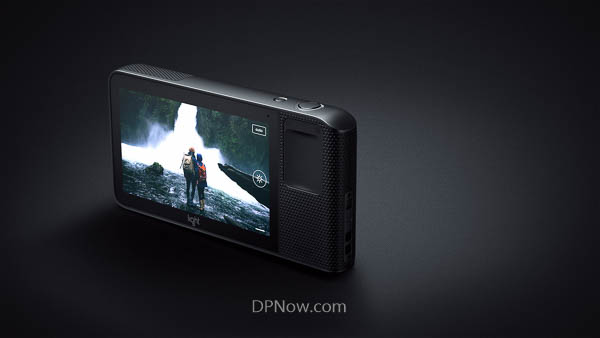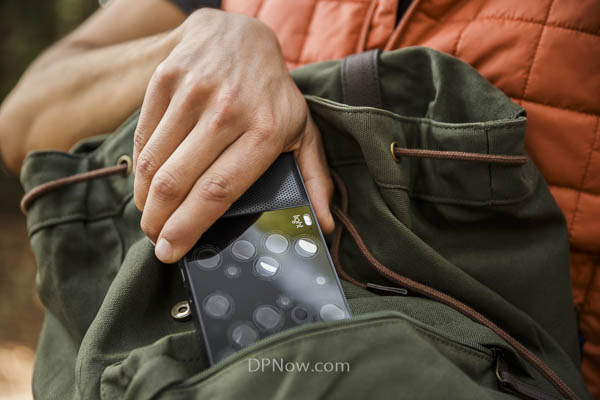Is this the DSLR's real nemesis?

A camera that claims to challenge what you're used to, camera-wise, in a smartphone as well as DSLRs has been revealed by a US-based start-up, simply known as 'light' and which has already attracted $35 million in backing. The camera is the Light L16, with that number referring to the number of lenses that are built into the Android-based device.
16 lenses - built in

In fact the L16 is more accurately known as a computational camera as images are processed from ten images simultaneously recorded by ten of the 16 available mini-cameras that comprise the L16. Light claims that the L16 can produce images of up to 52 megapixels in resolution and the user can creatively control image aspects like depth of field without the restrictions of conventional single lens/sensor cameras. When the L16 ships in the summer of 2016 it will also feature a super high resolution 4K video shooting mode.
Views of the innards of a prototype reveal the 16 mini cameras inside a slim case design, using folded optics with each lens connected to each of the 16 sensors using a mirror. This is similar to the way some compact digital cameras work although prisms are also used instead of mirrors. The clever bit is the image processing that intelligently blends ten feeder images to form one high quality composite image.
The company says the L16 can shoot at an equivalent lens brightness of f/1.0 and its effective optical zoom focal length range is 35-150mm (135 or full frame format equivalence), with each camera representing a step of the zoom range. Only up to ten of the 16 available cameras shoot at any one time.
DPNow's take on the L16

We're always excited and intrigued by ambitious innovations like the Light project. It looks very serious, has some very clever people involved and has sound initial financial backing, too. The driving force behind the project is also spot on; to deliver a DSLR experience in a device that can be slipped into your pocket. The multiple lens and composite image processing deal is also one that others are working on, notably Pelican Imaging and it's array camera, although that particular effort seems to be taking its time to deliver a commercial product.
Naturally, we have some concerns about the L16. Yes, it's much smaller and more pocketable than a DSLR, but it's considerably larger and bulkier than even the largest of phablet smartphones; the vast majority of potential buyers will not be aiming to replace their smartphone with an L16. The internal complication of folded optics and mirrors looks like a potential weakness in terms of efficiency and basic precision. Nevertheless, the image processing could well answer that concern. Being limited to 35mm for wide angle use is a serious limitation. Standard kit zoom lenses usually go as wide as 28mm and most serious photographers want to use considerably wider angle lenses. Smartphones can typically shoot a lot wider then 35mm, too. You can also fit a wide variety of high quality specialist lenses to a mirrorless or DSLR camera and you can't on an L16. By its very nature, aping a smartphone, there is no eye-level viewfinder and camera handling is likely to be a major compromise.

Light are quick to point out that DSLR owners are put off using their cameras because of their bulk and weight. But this is also the primary message from manufacturers of mirrorless system cameras and the US in particular has proven to be a very difficult market form mirrorless brands to crack in the face of resilient demand for DSLRs.
Fundamental image quality is also an unknown. Light does offer some sample images on its web site but these will be carefully produced and hand-picked images produced using prototype rigs. The real litmus test will be when sample cameras are supplied to reviewers, which the company says will happen next Spring.
The final concern is the L16's $1699 launch price, which makes it a niche product to start with at least. You can order an L16 now but buyers will also have to wait for the best part of a year before they start to receive their cameras.
One thing we are absolutely certain of - we can't wait to get our hands on an L16 with which to explore all the issues we've underlined above.
Light's website is at www.light.co
Reader feedback:
Discuss this story:




